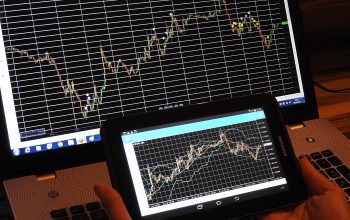A contract for difference (CFD) is an agreement between two parties to exchange the difference in the value of a financial instrument over a specified period. CFDs are traded on margin, meaning that investors only need to put down a small deposit – or margin – to open a position. It makes CFDs an attractive proposition for investors who want exposure to a particular market but don’t have the capital to do so outright.
What is leverage?
Leverage is a crucial feature of CFD trading. It allows investors to open positions with a smaller deposit than would be required if they were buying the underlying asset outright. For example, if an investor wants to buy $10,000 worth of shares in Company XYZ, they need to put down $1,000 if they’re trading on 10:1 leverage. It means that for every $1 the investor puts down. They can trade $10 worth of shares.
Significantly, leverage also amplifies both profits and losses. So, if the shares in Company XYZ increase in value by 10%, the investor will profit $1,000. However, if the shares fall by 10%, the investor will lose $1,000.
What are the benefits of CFD trading?
CFD trading offers many benefits for investors. These include:
- Access to a wide range of markets: CFDs provide access to many markets, including forex, shares, indices, commodities, and treasuries.
- Leverage: As mentioned above, leverage allows investors to open positions with a smaller deposit than would be required if they were buying the underlying asset outright. It can amplify both profits and losses.
- Short selling: CFDs allow investors to go short and long on an asset, meaning they can profit from falling prices and rising ones.
- No stamp duty: When investors buy shares outright, they’re subject to stamp duty. It is not the case with CFDs.
What are the risks of CFD trading?
CFD trading does carry some risks, which potential investors should be aware of before they start trading. These include:
- Leverage: As previously mentioned, leverage can amplify both profits and losses. It means that investors can lose more money than they have deposited into their accounts if the market moves against them.
- Market volatility: The value of financial instruments can move up and down rapidly, meaning that investors can make or lose money quickly. It can be exacerbated by leverage, as small movements in the market can have a magnified effect on an investor’s position.
- Counterparty risk: When an investor enters into a CFD contract, they agree with another party. It means that there is a risk that the other party will not be able to fulfil their obligations under the contract.
These are just some of the risks associated with CFD trading. It’s important to remember that all investments carry risk, and you should never invest more than you can afford to lose. If you’re thinking about trading CFDs, you must understand the risks involved and seek independent financial advice if necessary.
So, can you trade CFDs without leverage?
The answer is yes, but it’s not advisable. Leverage is a crucial feature of CFD trading. It allows investors to open positions with a smaller deposit than would be required if they were buying the underlying asset outright. It can amplify both profits and losses.
CFDs are also traded on margin, meaning that investors only need to put down a small deposit – or margin – to open a position. It makes CFDs an attractive proposition for investors who want exposure to a particular market but don’t have the capital to do so outright.
However, it’s important to remember that all investments carry risk, and you should never invest more than you can afford to lose. If you’re thinking about trading CFDs, you must understand the risks involved and seek independent financial advice if necessary.
In conclusion
Yes, you can trade CFDs without leverage, but it’s not advisable. Leverage is a crucial feature of CFD trading. It allows investors to open positions with a smaller deposit than would be required if they were buying the underlying asset outright. It can amplify both profits and losses.







